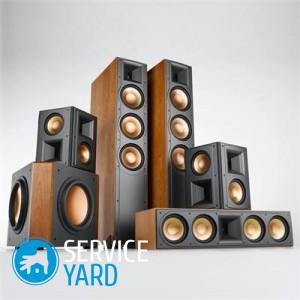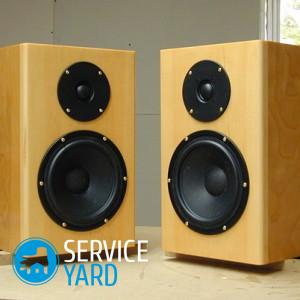How to choose an amplifier for the speakers in terms of power?

Quite convenient when your favorite music is at hand. Vehicles have long ceased to be exceptions. But will the car enthusiast miss the stock audio system? Factory equipment will not be able to give the desired effect. To please yourself with a pleasant and high-quality sound, it is worth acquiring more modern acoustics. This article will help you figure out how to choose an amplifier for the speakers in terms of power and other technical criteria.
to contents ↑Amplification devices and their power
How to choose the right acoustics? Let's talk more about the devices themselves, since there are dozens of little things that you need to know and understand. It’s worth starting with the device itself and its types, in order to understand how to choose an external amplifier for speakers and not make a mistake.
The calculation of the amplifier power to the speakers can be easily selected. The selection of the amplifier to the speakers in terms of power is one of the main principles of choice. In order to avoid mistakes, it is necessary to familiarize yourself with several main opinions:
- The power of the amplifier device is less than the power of the loaf.
- These parameters are equal for both devices.
- The amplifier has higher power values.
Important! Do you want the sound quality when watching movies, TV shows to be much better than in the standard settings? We recommend that you read the detailed instructions.how to connect speakers from a home theater to a TV.
Who is right? Who should I listen to? Let's look at each situation in detail.
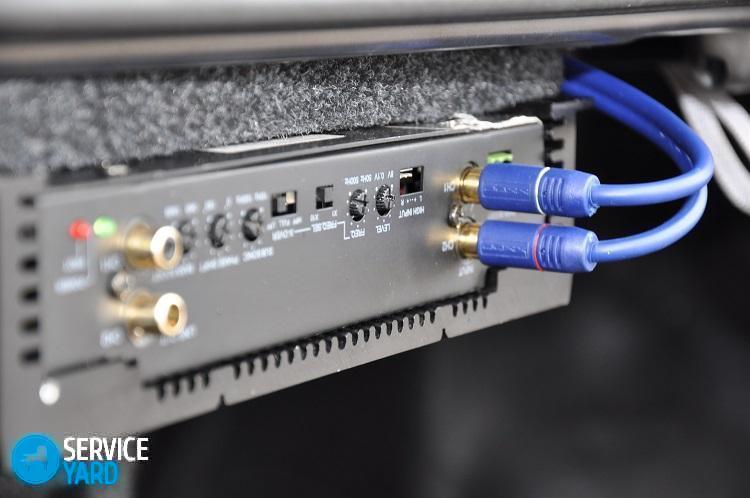
First case
First you need to know the value of the rated power. The speakers should work properly at this value without any problems. The maximum power of the amplifier should take such values at which distortion levels are acceptable.
Important! We devoted a separate review to the topic of connecting speakers to a computer. Learn all the helpful tips in our post. "How to connect speakers to a computer without an amplifier?".
There are rules for the speakers, and for the amplification device. Speakers do not like any mechanical and thermal influences. The mobile system may fail if the mechanical impact is great. We need to avoid such a scenario, by accurately selecting the value that characterizes the maximum course of the cone.
Important! Twenty percent is the maximum acceptable value for this case.
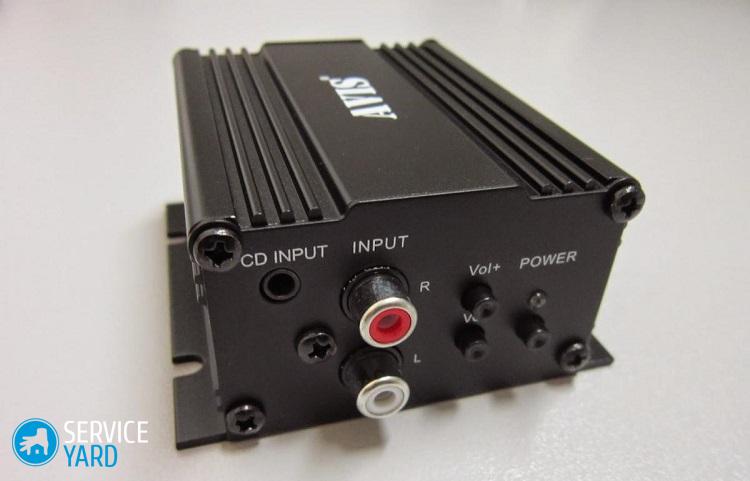
But thermal effects will manifest themselves in overheating of the speaker system. They can be called for the following reasons:
- Clipping is a lack of device power values. In other words, the amp will produce a large number of high frequencies if you decide to turn up the volume. You will not notice how the voice coil will rapidly fail, having experienced the influence of a huge temperature.
- The turns of the coil can jump out of the working gap and all the energy of the amplifying device will go to its heating. If you do not pay attention to it in time, you can pay dearly.
Important! Try to avoid listening to tracks with very low frequencies. Love for such compositions can play a trick on the move, even if the power is extremely small.

Second case
Experienced motorists do not see any prospects for such an event. The rated power is selected to match a supply voltage of approximately 14.4 V.
Important! In reality, holding such a voltage at the ends of the output of the device will not work. The amplifier will immediately feel the effects of clipping, and the voice coil will be in danger.

Third case
Selecting an amplifier for the speakers in terms of power is a pretty subtle task. There is a technique with indicators two or even three times as large. Are mechanical damage dangerous under these conditions? It is worth fearing only if you have a firm intention to mock the speakers. But nobody will do that. It is enough to simply avoid the maximum gain levels and not listen to those tracks that are “crammed” with abundance at low frequencies.
to contents ↑Important! The verdict is this: security is a rather subjective phenomenon, and the main criterion for success is the presence of a head on one's shoulders. But if you analyze the statistics, it is obvious that the third case is the most convenient and least dangerous for your speaker system.
Frequency range
How to choose an amplifier for speakers, knowing the frequency range of the device? It is no secret that it is the frequency that is responsible for the scatter. The most common values range from 15 to 350 hertz.
Important! Do not believe the manufacturers who indicate sky-high values on the package, otherwise - you risk falling for the usual marketing ploy.
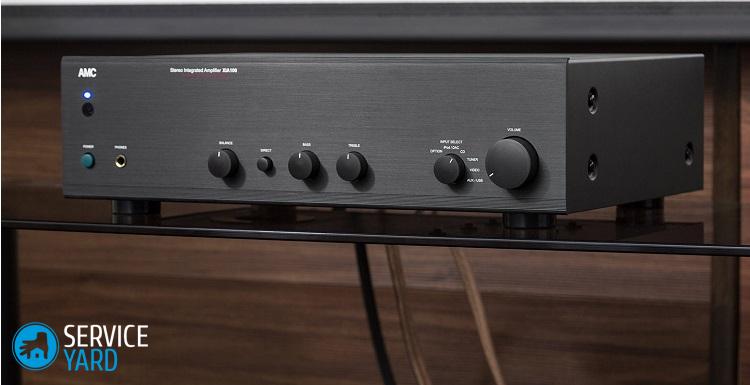
Classification
If you understand the frequency and power, you can familiarize yourself with the classes of amplifying devices. All known amplifiers can be divided into two types:
- Analogue Such devices have excellent quality, but low efficiency.
- Digital. Such devices have worse qualities, but boast a high efficiency.
What class to choose? It all depends on your individual preferences and available funds.

Types of Amplifiers
It is worth focusing on the types of amplifiers:
- Monoblocks. Cope with the load resistance within a pair of ohms. Monoblocks are the choice of owners of audio systems, the power of which serves as the main indicator.
- Two-channel. Technique for 4-8 ohms. It is connected using coils or a bridge circuit.
- Three-channel. These devices have lost their former relevance, so it makes no sense to consider them.
- Four-channel. The most popular audio systems work with such amplifiers. A good reputation is backed by good sound quality.
- Five channel. The low price and the same small dimensions are an indisputable advantage of such devices ..
- Six-channel. Quite rarely used in practice due to its uselessness.
Stock footage
The selection of the amplifier for the speakers in terms of power and other parameters will no longer cause you questions. Trust only verified manufacturers and do not be lazy to double-check the technical values of the device several times. Have a nice listening!




